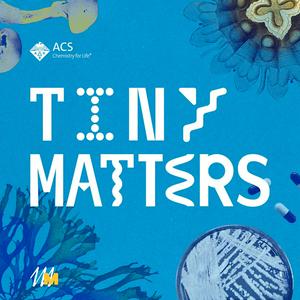[BONUS] Fungus farming ants and disappointing orange juice: Tiny Show and Tell Us #17
In this episode of Tiny Show and Tell Us, we cover the incredible world of fungus farming ants and how it really needs to be a Pixar movie. Then we talk about what makes fresh squeezed juice taste so much better than the mass produced processed juices you pick up in the grocery store. We need your stories — they're what make these bonus episodes possible! Write in to
[email protected] *or fill out this form* with your favorite science fact or science news story for a chance to be featured.A transcript and references for this episode can be found at acs.org/tinymatters.See Privacy Policy at https://art19.com/privacy and California Privacy Notice at https://art19.com/privacy#do-not-sell-my-info.

